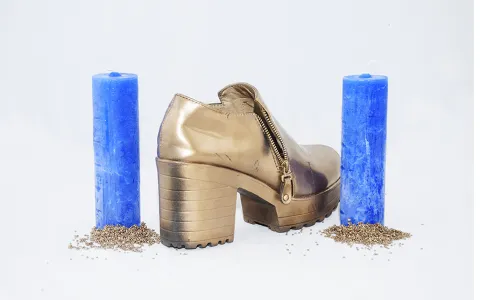Nayare Montes
Sexual dissident bodies were always considered monstrous, those that have monstrous, almost cannibalistic attitudes. Eager to devour other monstrous bodies. But not just any sexual dissident body. The violence of the monstrifying gaze has been excessively concentrated on racialised bodies from the southern hemisphere. I refer to that gaze that takes in those wide noses, extra-round skulls, thick hair, wide feet that break the heels of bought-in-Primark shoes, and calls them excessive, exaggerated, capricious, baroque.
In this sense, it is those racialised bodies that are dissident to cis-heteronormativity that are the true monsters, the ones nobody wants to imagine, the ones that when they spring to mind bring panic in their wake.
We are monstrosities that are also beautiful and even unpleasant if we want to be; all the contradictions intersect in these bodies. Bodies that love and that even in a collective are always beset by loneliness.
How can a fragile body be strong? How does one collectivise black, brown and dissident solitude into community solitudes? How do we transform the colonial imaginary so that a mere empty representation of our bodies is not enough, but so that our radical presence is also felt?
We monster girls embrace our fragility, even if we complain about it. We come together to heal, even though we know that colonial wounds will continue to bleed throughout our lives. Just getting together, being aware and taking care of each other is already an impossibility that we are making real in the midst of a city whose institutions endeavour to crush us day after day.
Bodies that Make you Panic just Dreaming about Them consists of writing with the body. Or draw with it. Bodies that talk to each other, that talk to you. Bodies composed of questions that give temporary answers. Bodies that stop time.
What bodies do we dream about? How do we transform these bodies? what does it mean to transvest one or several bodies? Just like trans people, we live with different types of prosthesis (makeup, wigs, binders, reworked clothes). With these extensions of our bodies, we will look for ways to lose the human form as a central form to evolve into ancestral, animal, unidentifiable forms. We will use our own non-professional skills, dance, twerking, the spoken word, musicality, percussion rhythms, poetry, even inactivity, to unite them and generate that scenic-ritual-performance art piece. It is not easy to predict which specific format will take shape, but we do know what ingredients will give rise to that format: cabaret, a poetry slam, tableaux vivant, vis-à-vis, expanded theatre, a drag show, runway.
These bodies leave a performative halo in their wake, when they move through the underground or when they cross the street. To generate a space in which to explore that performativity that is specific to racialised sexual dissident bodies opens up a whole framework of exploration that has not been made as possible as one might have wished, but that is just what we will now try and perhaps fail to do in this laboratory in which Noelia Quino, Gadyola, Angel Avantgarde, Oumoukala and Sofía Perdomo will intervene from time to time.
Nayare Otoronga Montes Gavilán
(Madrid, 1996) She graduated in Fine Arts at the Complutense University of Madrid and completed part of her studies in Guadalajara (Mexico). She has collaborated intermittently with the Ayllu contemporary creation and activism collective which is dedicated to issues of migration, anti-racism, coloniality and sexual dissidence. She is part of the trans and anti-racist pedagogies project La Combi Completa: Chocha, Culo, Teta (The Works: Twat, Ass, Tit). She currently works and lives in Madrid.
Her artistic work takes in photography, corporal and scenic exploration, sewing, drag, poetry, and the recovery of ancestral transvestite memories. From the very embodiment of all that is implied when you are a transvestite and brown in a world that exerts violence on these bodies, she tackles racial and gender issues without abandoning the memory and spirituality of Abya Yala, in an effort to recover these erased stories and reconstruct them with fiction, the transvestite weapon par excellence. Transvestite thought and community work envelop her method of work, recognising that collaboration and agreement are always necessary in order to build.
She has performed in such places as the Teatro del Barrio, the Conde Duque Cultural Centre, Matadero Madrid and EKKA.

